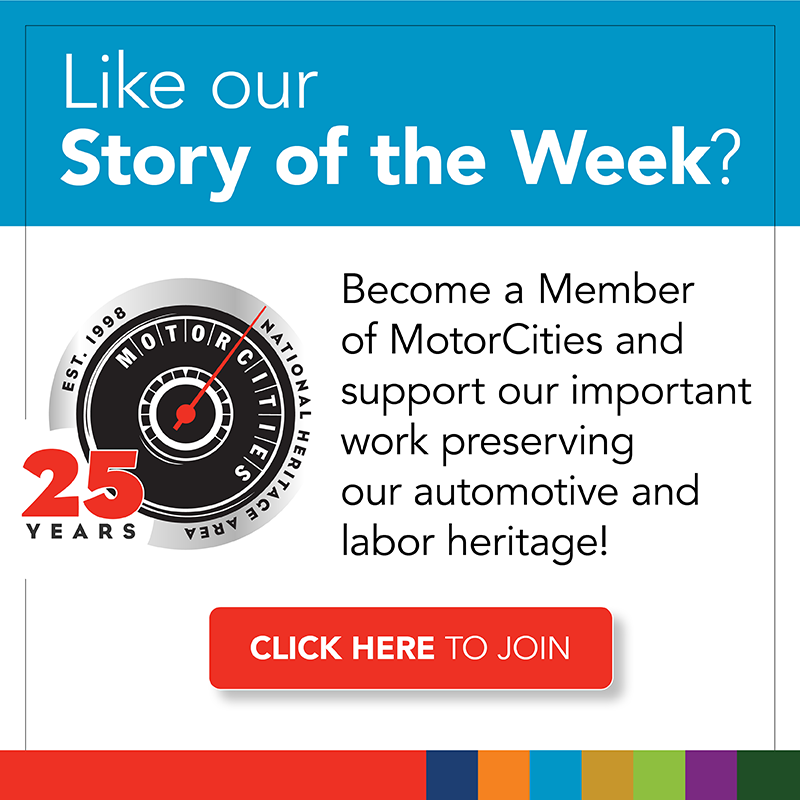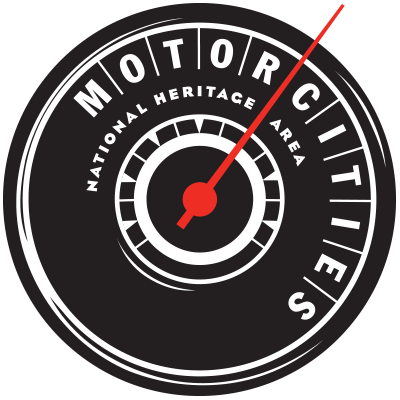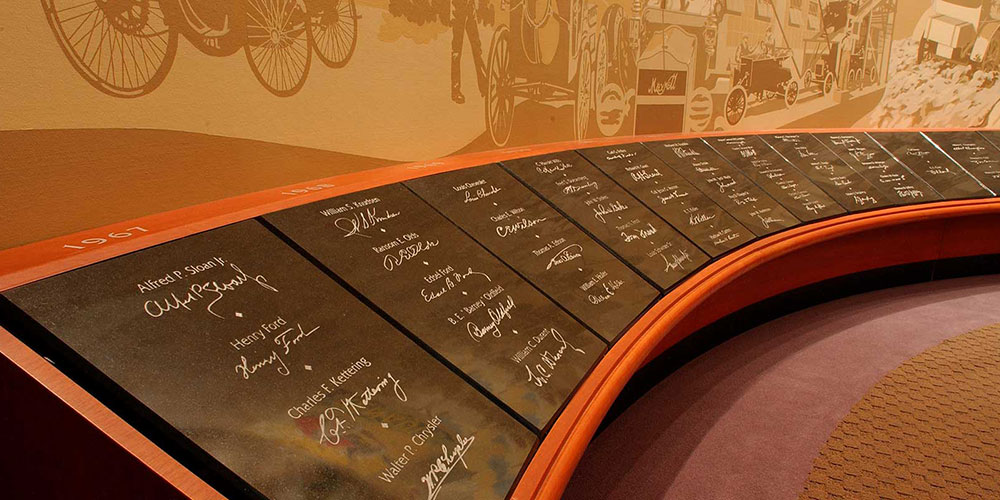By Robert Tate, Automotive Historian and Researcher
Images courtesy of Ford Motor Company Archives
Published 8.11.2021
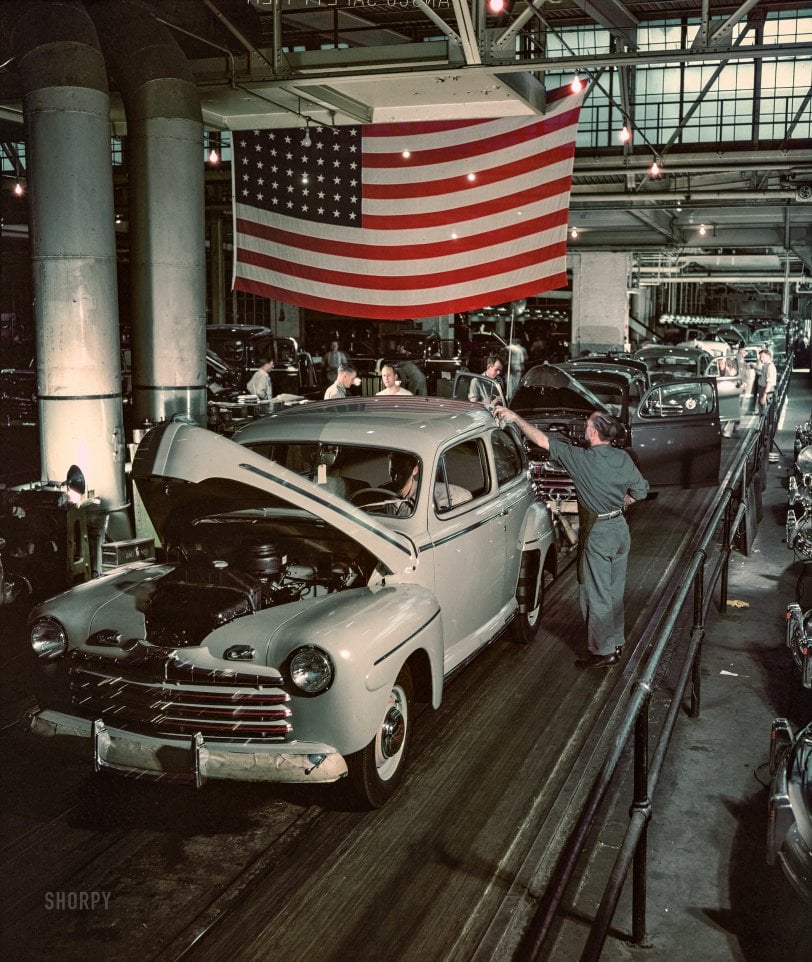 The first post war Ford assembly line in 1946 (Ford Motor Company Archives)
The first post war Ford assembly line in 1946 (Ford Motor Company Archives)
During World War II, many Americans longed for the end of the conflict so everyone could move on with their lives. When the war ended in 1945, a large number of Americans were waiting in line or on a waiting list to purchase a new automobile from the domestic manufacturers.
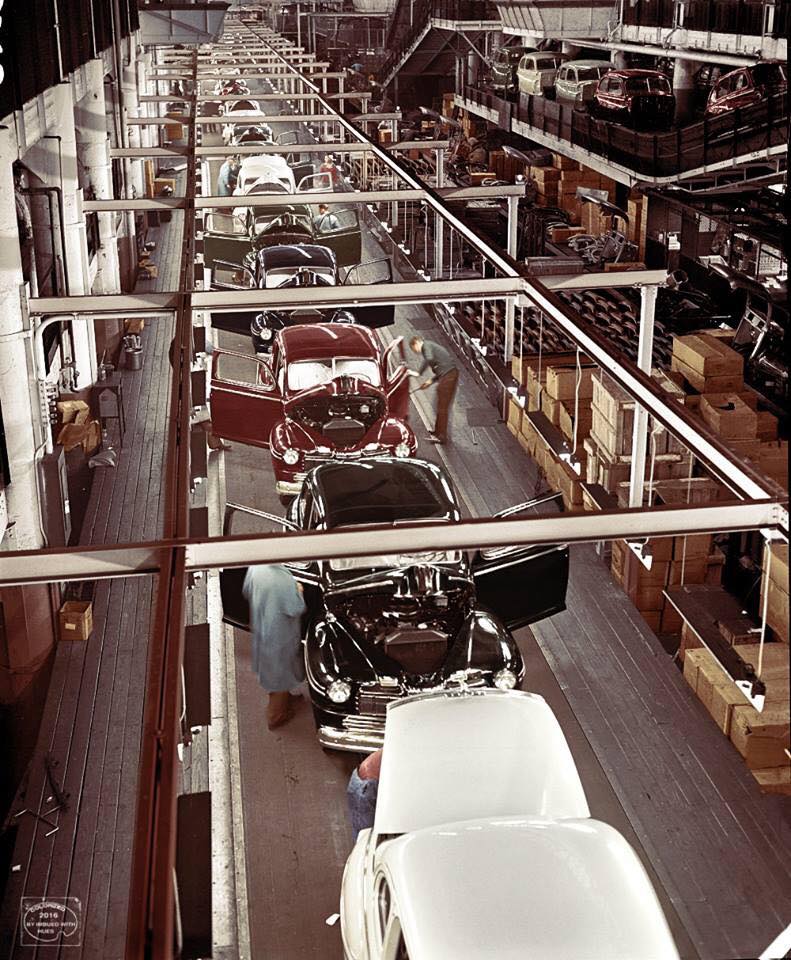 1946 Mercury assembly line (Ford Motor Company Archives)
1946 Mercury assembly line (Ford Motor Company Archives)
On February 10, 1942, civilian car manufacturing at Ford was stopped by a government order. After the war’s end, the first passenger car announcement for the post-war market was made by Ford on the details of the 1946 Super Deluxe models. The transition from military production in automotive plants was slowly but steadily freeing up space and manpower for restarting the auto assembly lines – and the American economy.
On June 28, 1945, the last B-24 bomber built by Ford rolled off the Willow Run assembly line. July 3, 1945 was a special day for the company when Henry Ford II drove the first post-war civilian Ford model off the assembly line.
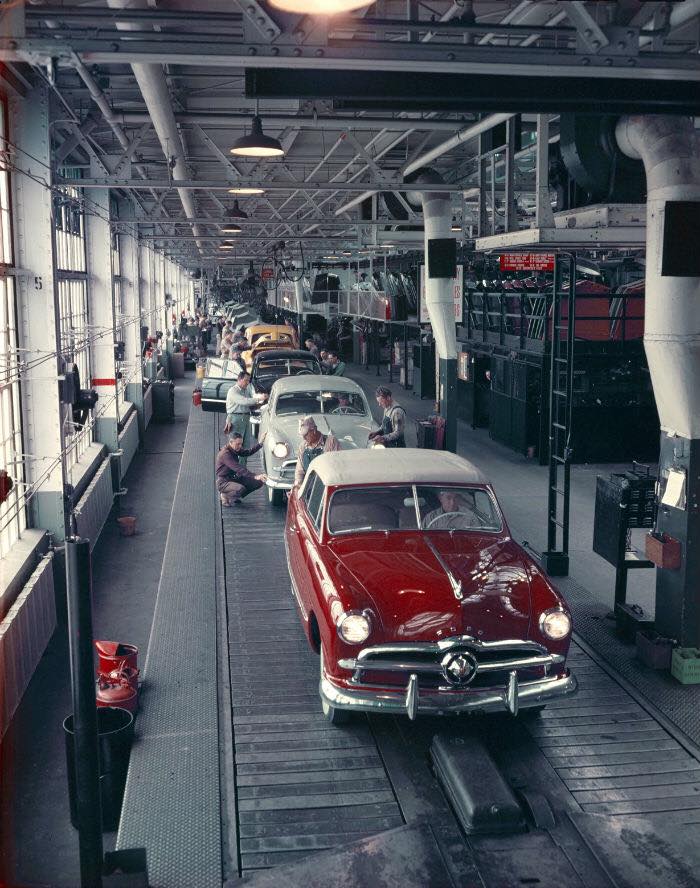 A 1949 Ford convertible coming off the line in Dallas (Ford Motor Company Archives)
A 1949 Ford convertible coming off the line in Dallas (Ford Motor Company Archives)
The 1946 Ford models were nothing more than previous 1942 designs. Americans were so eager to purchase new cars that virtually anything offered would be of interest to the consumer market. The basic 1946 Ford Super Deluxe Tudor was priced at $1,260. For 1947 and 1948, the body styles changed very little.
The first 1946 Ford models rolled off the assembly lines at its world-famous Rouge plant, as well as its other plants across the country. As Ford ramped up production to meet the great demand, Lincoln and Mercury passenger car manufacturing resumed November 1, 1945. The company reported that they were building 400 cars a day and had almost achieved full production.
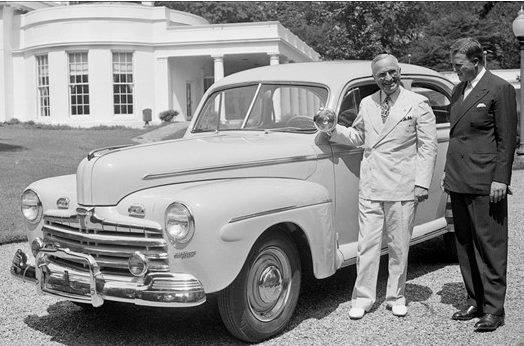 President Harry Truman and Henry Ford II (Ford Motor Company Archives)
President Harry Truman and Henry Ford II (Ford Motor Company Archives)
On September 21, 1945, Henry Ford II had been named president of Ford Motor Company, succeeding his grandfather Henry Ford. Just before receiving his new position, “Hank the Deuce” personally delivered the first civilian car off the assembly line to President Harry Truman at the White House. The car was a 1946 Super Deluxe Tudor which came off the line on July 3.
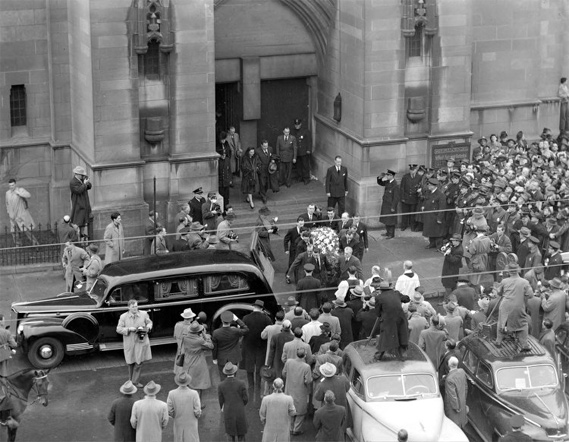 The 1947 funeral of Henry Ford (Ford Motor Company Archives)
The 1947 funeral of Henry Ford (Ford Motor Company Archives)
Less than two years later, on April 7, 1947, the world lost a great giant in the auto industry when Henry Ford passed away at age 83. Author Loren Sorensen said, “Mourners line Joy Road on Detroit’s west side as a procession of Lincolns accompany the body of Henry Ford to the small family burial plot located just a short distance from where he was born.” His funeral was attended by over 100,000 people.
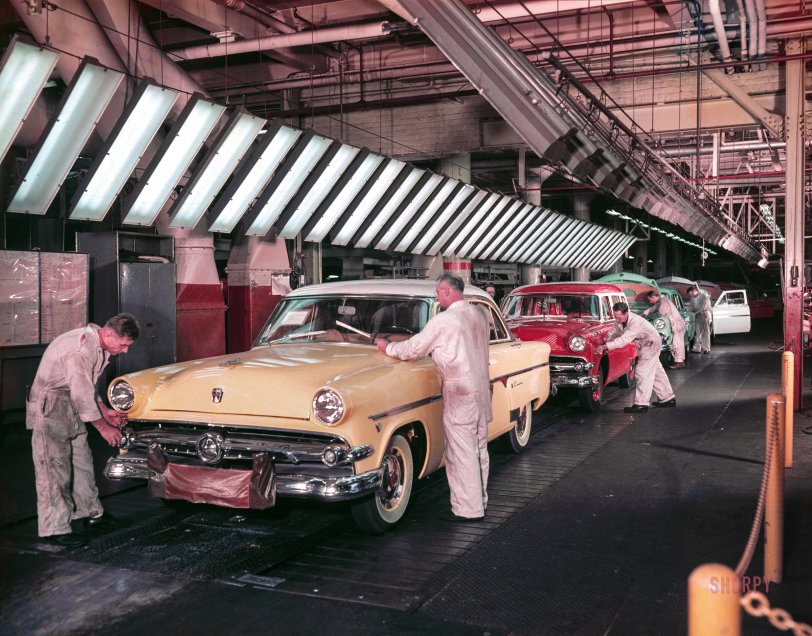 Cars on the line at the Ford Dearborn Assembly Plant in 1954 (Ford Motor Company Archives)
Cars on the line at the Ford Dearborn Assembly Plant in 1954 (Ford Motor Company Archives)
For 1948, Ford introduced a newly designed truck model, the ½ ton pick-up called the F-I, that sold for $1,212.
The 1949 Ford models were introduced to the public on June 1,1948 and then displayed in New York from June 10-15 at the Waldorf Astoria hotel. The 1949 Fords then made it to dealer showrooms on June 18, 1948, where they went on to huge sales success. The most popular feature on the 1949 Fords was the sleek slab vehicle design widely admired by the driving public. Ford’s assembly lines ran at full capacity so that by 1951, the company outproduced Chrysler to regain second place among the world’s automakers.
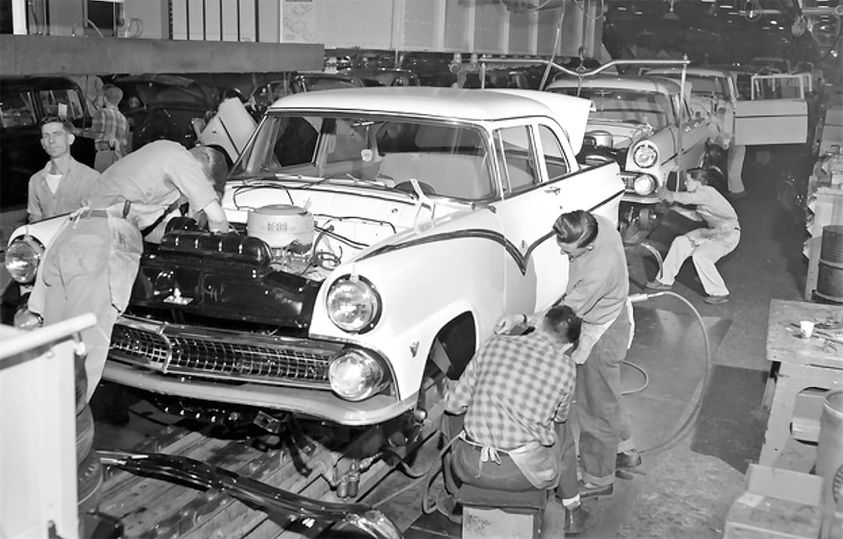 A Ford assembly line in 1955 (Ford Motor Company Archives)
A Ford assembly line in 1955 (Ford Motor Company Archives)
In the 1950s, Ford offered many new and great looking models, like the 1954 Skyliner, the 1955-56 Crown Victoria, and the new Thunderbird models. The Thunderbird was a great looking two-seater that outsold the Chevrolet Corvette. The Thunderbird design came from two individuals, Franklin Q Hershey and a young designer by the name of Bill Boyer. Ford called the Thunderbird “a personal car.” It was manufactured at the Dearborn Assembly plant starting in September 1954. The new Thunderbird was introduced to the public at the Detroit Automobile show in February 1954. The 1955 Ford Thunderbird drew huge crowds from the 1954 Michigan State Fair to the 1954 Chicago Auto Show.
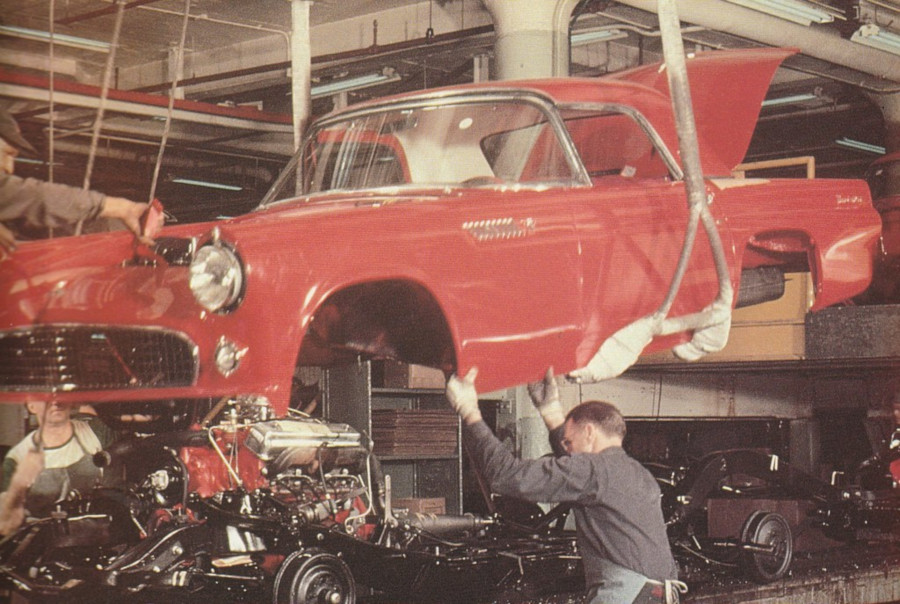 A 1955 Thunderbird at Dearborn Assembly (Ford Motor Company Archives)
A 1955 Thunderbird at Dearborn Assembly (Ford Motor Company Archives)
In conclusion, the years between 1946 and 1955 at Ford were productive and memorable for many Americans and will always be a part of our automotive history.
Bibliography
Sorensen, Lorin. “The American Ford from the Fordiana series.” Silverado Publishing Company.
Sorensen, Lorin. “Ford’s Golden Fifties.” Silverado Publishing Company, 1997.
Dammann, George H. “Illustrated History of Ford, 1903-1970.” Crestline Publishing, 1970.
Langworth, Richard M., and the Editors of Consumer Guide. Classic Car Series: “Great Cars from Ford.”
